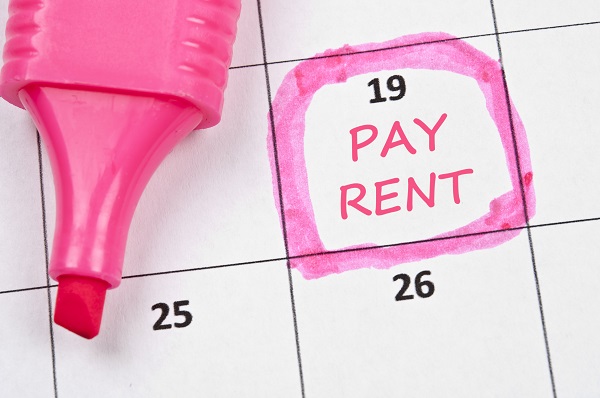Renting property can be a lucrative business, but it has its own set of laws and rules that landlords must comply with when handling tenants. One common question new landlords often ask is how to collect rent once it’s past due. Renting property can be a challenge when you’re dealing with people who perpetually pay late or only pay when eviction is threatened. Knowing the different options you have in these situations and how they work is important.
Perhaps the best place to start, if possible, is by talking to your tenant. A tenant who previously paid regularly may have run into a financial or personal problem and paying rent simply slipped through the cracks. It could even be a happy occasion, such as a wedding or birth, where your rent notice was lost in an influx of mail. Whatever the reason, if you have the opportunity to speak with your tenant, you may be able to quickly work out a solution.
If your lease agreement allows, you can charge late fees that are no more than 8% of the rent payment. This is one excellent reason to have a written agreement in place, even if you only rent one or two homes. Landlords who have a residential unit with 12 or more tenants are required to have a written lease.
In some circumstances, you tenant has a right to withhold rent payments. If, for example, an “essential service” such as heat or water is broken and has not been promptly repaired, your tenant may pay their rent into an escrow account until the problem is remedied.
If there is no valid reason or judgement and you tenant still hasn’t paid, you should consider having an attorney help you proceed. Since you are allowed under Minnesota law to collect court and attorney’s fees, it’s a good idea to have one by your side. A lawyer can often resolve this issue simple by writing a letter to the tenant on their official letterhead as it shows you are willing to move forward if no rent is forthcoming. A lawyer can also help you think through your options as far as collecting rent or evicting an nonpaying tenant.
For example, if your tenant is a monthly tenant at will, you must give your tenant a notice in writing to quit the premise. Collection actions, if less than $15,000 (this amount varies by county) can be brought in Minnesota Conciliation Court. These are two different options you could pursue on an nonpaying tenant.
Whether you are an experience landlord with several properties for rent or are just getting started, it helps to have the legal expertise on call to help you manage difficult situations. The team at Virtus Law Firm has significant real estate experience and can help you set up lease agreements that protect you, negotiate details with tenants, and give advice when a tenant stops paying. Give us a call at 612.888.1000 or send us an email at info@virtuslaw.com to set up an appointment.

